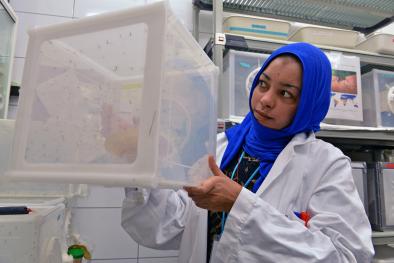Headline
Global warming to expose more people to Zika-spreading mosquito Aedes aegypti
Southern and Eastern US

A human-dependent mosquito, the range of the disease-carrying Aedes aegypti is projected to grow in the U.S. and affect more people globally. Photo: sanofi-pasteur/flickr
My colleagues and I recently completed a study examining how projected changes in climate and human population may increase global exposure to the mosquito that spreads these viruses: Aedes aegypti.[1]
We found that both climate change and human population change will play a part in driving future human exposure to Aedes aegypti globally. In the United States, specifically, warming temperatures from climate change mean that this disease-spreading mosquito will be increasingly abundant in the southern and eastern US
Related Content
Science Source
| The Lancet
El Niño and climate change—contributing factors in the dispersal of Zika virus in the Americas? - The Lancet
Shlomit Paz, Jan C Semenza
Science Source
| Proceedings of the National Academy of Sciences
Global risk model for vector-borne transmission of Zika virus reveals the role of El Niño 2015
Cyril Caminade, Joanne Turner, Soeren Metelmann et al
Headline

Apr 7, 2017 | Carbon Brief
Zika outbreak ‘fuelled by’ El Niño and climate change
Science Source
| MMWR. Morbidity and Mortality Weekly Report
Vital Signs: Update on Zika Virus–Associated Birth Defects and Evaluation of All U.S. Infants with Congenital Zika Virus Exposure — U.S. Zika Pregnancy Registry, 2016
Megan R. Reynolds, MPH; Abbey M. Jones, MPH; Emily E. Petersen et al


